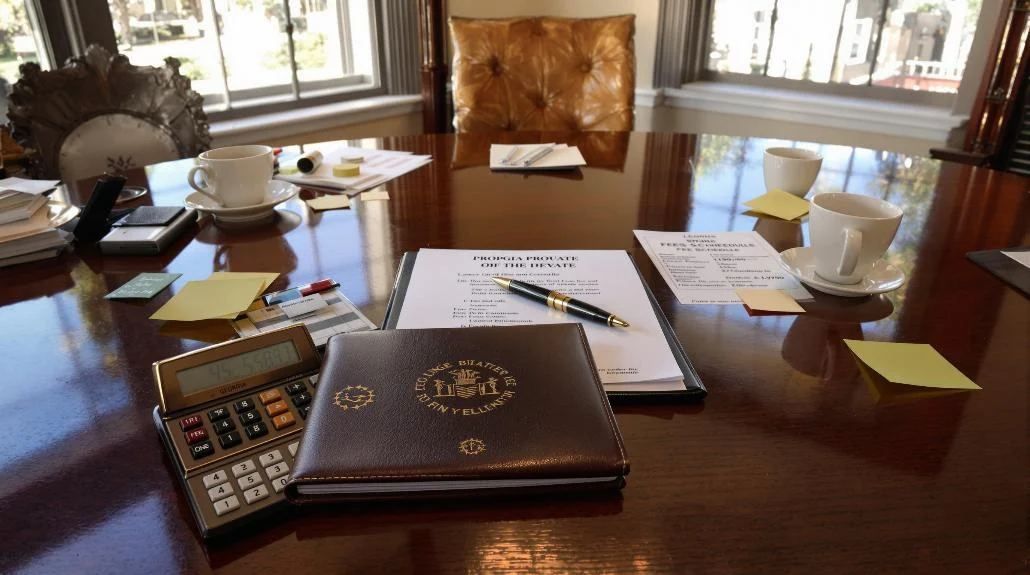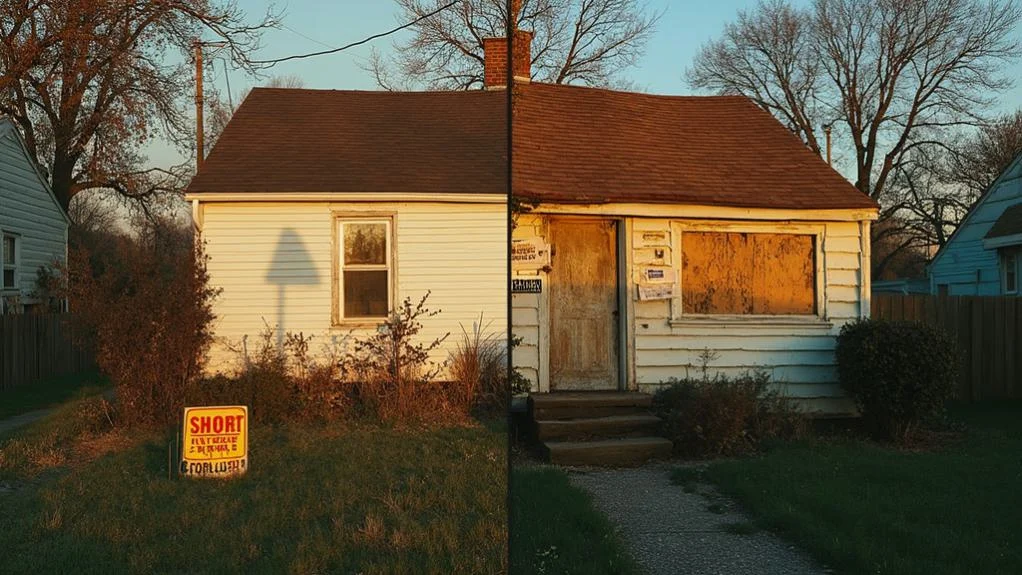Sarah’s heart sank as her mother’s health got worse. The cost of long-term care scared her. “Will Medicaid take our family home?” she thought, feeling scared. Sarah’s story is like many others facing Medicaid and nursing home care issues. With Sell My House Rocket Fast, Sarah found a way to keep her mother’s home safe and reduce her care costs.
If you’re worried about Medicaid and your home, you’re not alone. Medicaid, home equity, and long-term care can be confusing. We’ll clear up the confusion and share the facts.
Key Takeaways
- Medicaid generally can’t take your house while you or your spouse are living
- Estate Recovery Programs may target homes after a beneficiary’s death
- Exceptions exist for surviving spouses and certain family members
- Home equity limits affect Medicaid eligibility
- Proper planning can help protect your home from Medicaid recovery
Understanding Medicaid and Long-Term Care Coverage
Healthcare can be tough to navigate, especially when dealing with long-term care. The Medicaid program is key for those in need. Let’s look at how Medicaid works and its role in long-term care.
What is Medicaid?
Medicaid is a program that helps low-income people get health coverage. It’s a safety net for seniors, people with disabilities, and families who can’t afford medical care. Unlike private insurance, Medicaid covers a lot for those who qualify.
Medicaid’s Role in Long-Term Care
Many Americans rely on Medicaid for nursing home or assisted living care. It covers services from in-home care to skilled nursing facility stays. This makes Medicaid a key resource for families dealing with long-term care costs.
Eligibility Requirements for Medicaid
To get Medicaid, you must meet certain criteria. These vary by state but usually include:
- Income limits
- Asset restrictions (typically $2,000 for individuals in most states)
- Citizenship or legal residency status
- Age or disability status
Remember, your primary residence is usually not counted as an asset. But other things might affect your Medicaid eligibility. Knowing these rules is key when planning for long-term care.
The Medicaid Estate Recovery Program (MERP) Explained
The Medicaid Estate Recovery Program, or MERP, is key to Medicaid’s long-term care. It lets states get back money from a Medicaid recipient’s estate after they pass away. MERP started in 1993 to help keep Medicaid going.
It mainly affects people who were 55 or older when they got Medicaid benefits, or those under 55 who needed nursing home care. After someone dies who got Medicaid, the state starts trying to get back money. They look for it in the estate, which might include the home.

Each state has its own way of handling MERP. Some wait until the surviving spouse dies before trying to get back money. Others don’t try to get it back in some cases. There’s a one-year limit for the state to make a claim after the person who got Medicaid has died.
| MERP Element | Description |
|---|---|
| Target Population | Medicaid recipients 55+ or under 55 receiving nursing home care |
| Recovery Source | Probate estate, often including the home |
| Claim Filing Window | Typically one year after recipient’s death |
| State Variations | Different rules on timing and exceptions to recovery |
Planning your estate can really affect Medicaid’s chance of getting money from your home’s sale. Knowing about MERP is key for people on Medicaid and their families. It helps them make smart choices about long-term care and protecting their assets.
Can Medicaid Take Your House? Exploring Different Scenarios
Medicaid’s effect on your home varies based on where you live. Let’s look at how Medicaid handles your house in different situations.
Single Individuals Living Alone
If you live by yourself, your home might be safe from Medicaid if you have little equity. But, after you pass away, Medicaid could try to get back money through the estate recovery program. If you move to a nursing home, saying you plan to return home can help keep your house safe. You’ll still have to pay for upkeep costs.

Married Couples with One Spouse in a Nursing Home
For married couples with one spouse in a nursing home, the rules change. The spouse staying home can keep the house. Moving the house to just the community spouse can also protect it from Medicaid.
When Adult Children Reside in the Home
If your grown kids live with you, your home might not be counted by Medicaid if they’re disabled or blind. The Child Caretaker Exemption lets you transfer the home under certain rules, keeping it safe from Medicaid claims.
| Scenario | Home Status | Medicaid Implications |
|---|---|---|
| Single, living alone | Exempt if below equity limit | Subject to estate recovery |
| Married, one spouse in nursing home | Protected for community spouse | Can be shielded from recovery |
| Adult children in home | Potentially exempt | May qualify for transfer exemption |
Knowing these scenarios helps you plan for long-term care and protect your home. Each case needs a close look at Medicaid rules and your own situation.
Home Equity and Medicaid Eligibility
Knowing how home equity affects Medicaid eligibility is key for those looking for long-term care. Your home equity interest is a big factor in seeing if you get Medicaid benefits.
Home Equity Interest Limits
Medicaid has certain limits on home equity to check eligibility. In 2024, these limits change by state:
| State Category | Home Equity Limit |
|---|---|
| Standard States | $713,000 |
| High-Cost States | $1,071,000 |
Your home equity is figured out by subtracting any loans or liens from your home’s value. If your equity is over these limits, you might not get Medicaid.
Exceptions to Home Equity Rules
Some situations let you go past the home equity limits:
- Your spouse lives in the home
- A child under 21 lives in the house
- A blind or disabled child of any age lives in the property
In these cases, your home won’t count towards Medicaid’s asset checks, no matter its value. Some states also allow “Intent to Return” statements. These can protect your home for a bit if you plan to come back from a nursing home.
To get the best advice on protecting your home and Medicaid, talk to an elder law attorney. They can help you find ways to keep your home safe while making sure you get the care you need.
Protecting Your Home from Medicaid Recovery
Protecting your home from Medicaid is key in Medicaid planning. Many families fear losing their house to pay for long-term care. Luckily, there are ways to keep your property safe.
Using irrevocable trusts is a good strategy. By moving your home into this trust, it’s safe from Medicaid taking it. The trust owns the property, keeping it from being seen as an asset for Medicaid.
Long-term care partnership programs also offer protection. These programs let you keep more assets while still getting Medicaid. With a qualified long-term care insurance policy, you can keep an amount equal to the policy’s benefits.
- Keep assets out of probate
- Transfer the home to a community spouse
- Explore caregiver and sibling exemptions
Working with a Medicaid planner or elder law attorney is wise. They can help you understand the rules and create a plan to protect your home and assets.
Each state has its own Medicaid recovery rules. Some use liens to get back money, but these can be removed if you go back home. Knowing your state’s rules is important for good Medicaid planning.
Legal Considerations and Estate Planning for Medicaid Recipients
Estate planning is crucial for Medicaid recipients to safeguard their assets and secure proper care. It sheds light on how long-term care impacts your finances and estate. A Medicaid planning attorney can navigate the complex rules and regulations in your state.
If you’re concerned about Medicaid taking your house, there’s hope. Your heirs might get a hardship waiver to prevent estate recovery. Each state has its own rules for delaying or exempting recovery if family members live in or depend on the home. Legal help can guide you through these options and protect your assets.
Some states offer extra benefits for people with certain health conditions, like cancer. It’s key to understand how Medicaid interacts with estate planning and the probate process. This knowledge aids in making informed decisions about your care and assets. Remember, consulting with an experienced estate planning attorney is the best way to safeguard your home and uphold your wishes.









